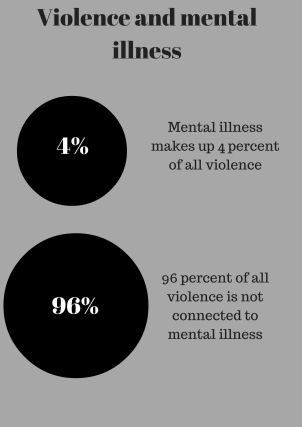
Since 2013, there have been at least 205 school shootings incidents in America. In the wake of gun-violence incidents in American schools, two positions are always voiced. Should there be stricter gun control, or should the mental health of potential shooters be the focus?
On the one side, former President Barack Obama has repeatedly called for more gun control. After the Sandy Hook Elementary School Shooting that occurred on Dec. 14, 2013, in Newtown, Conn., Obama pledged to propose new firearm laws.
On the other side, advocates say it is not guns but the mental stability of the shooters that is the cause. They place emphasis on mental health. Representative Howard Coble, Republican of North Carolina, expressed his opposition to Obama on the topic of gun control. “I think it is more of a mental health problem than a gun problem right now,” Coble said. “Traditionally states that enact rigid, inflexible gun laws, do not show a corresponding diminishment in crime.”
The connection between mental health and gun violence is very different in reality to the message presented by President Donald Trump. President Trump calls for mental health reform in his Second Amendment policy paper, but has no detailed plan that explains what these reforms entail and how they will help people.
What do psychologists have to say about mental health and shooters?
According to a study published by the American Psychological Association in 2014, there was no predictable pattern linking criminal conduct and mental illness symptoms over time.
According to the National Center for Health Statistics, fewer than five percent of gun-related deaths between 2001 and 2010 were caused by individuals diagnosed with a mental illness.
“We have the same rate of mental illnesses as any other developed nation,” Diana Trasatti, Cabrini alumna and volunteer communication lead of the New Jersey Chapter of Moms Demand Gun Sense in America, said. “We just have ridiculously higher rates of gun deaths.”
The data shows that people with mental illness only make up a small portion of those who have caused gun-related deaths. According to a study in the American Journal of Psychiatry, mass shootings by people with a mental illness have received significant news coverage in the media, which has created negative attitudes among the public.
“It is very important for college students to know their facts about and have a stance on the issue of gun violence,”Trasatti said. “Ninety-one people are killed everyday through gun violence in America.”
According to an informal questioning recently conducted at Cabrini University, 40 out of 44 college students between the ages of 18-24 believe that there should be laws in place in the United States to prevent someone with a mental illness from purchasing a gun.
An assumption that frequently arises in the aftermath of a mass shooting is that mental illness causes gun violence. According to the “American Journal of Public Health,” this issue becomes obscured when mass shootings come to stand for all gun crime.
A common misconception is that mental illness is a big part of the gun problem in the United States. According to the Epidemiologic Catchment Area Survey of mental disorders, the majority of people with a mental disorder are not violent. Only four percent of violence in the United States is attributable to people that have a mental illness. Therefore, 96 percent of all violence in America has nothing to do with mental illness.



